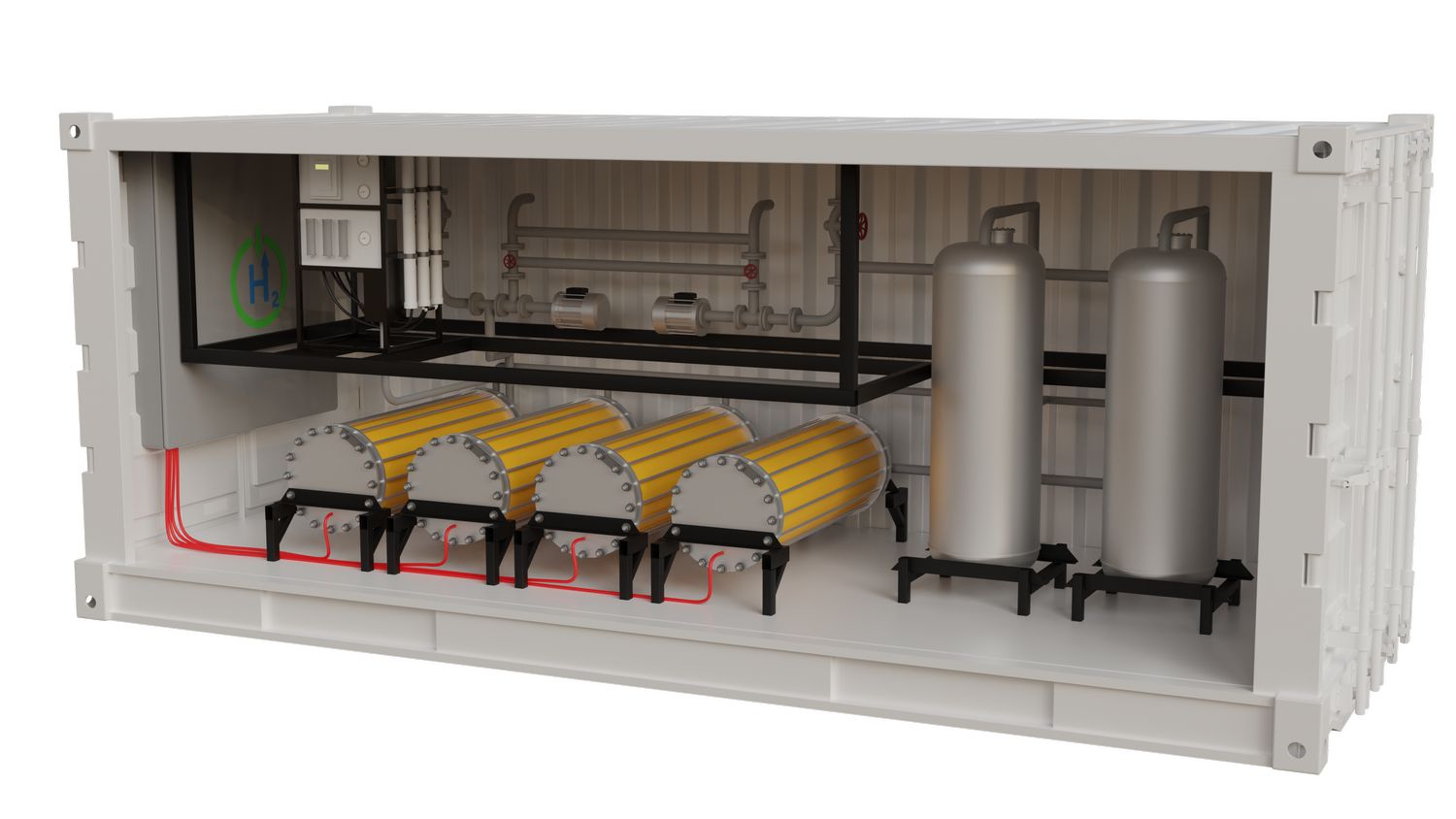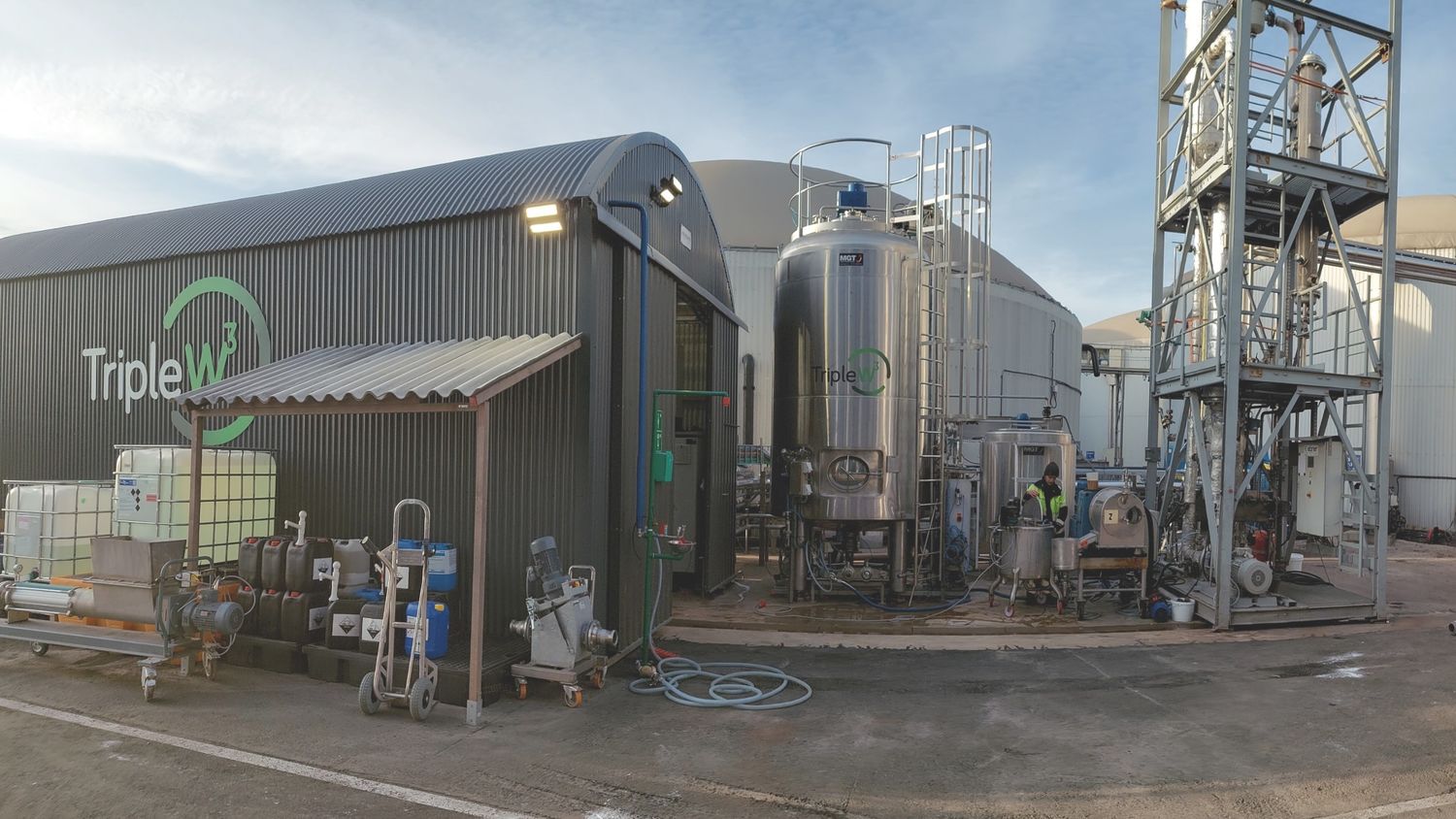Port of Antwerp-Bruges: March container throughput hits three-year high
NewsThe Port of Antwerp-Bruges says the container throughput is picking up again despite ongoing challenges and uncertainties in the market.
Port of Antwerp-Bruges already has the necessary infrastructure for receiving various hydrogen carriers such as methanol, ammonia and methane.

This week, the first concessionaires signed for NextGen Demo, the innovation hub that is part of NextGen District in the heart of the Antwerp port. Power to Hydrogen and TripleW have chosen to use the port environment to test their projects in energy transition and circularity.
Port of Antwerp-Bruges has already cleared an area with a total surface of 88 hectares for NextGen District with the ambition to establish a hotspot for the circular economy. NextGen Demo is a zone of about 2 hectares within this cluster in the heart of the Antwerp industry, where demonstrators (start-ups and scale-ups, spin-off companies, and pilot projects) can test new technologies and circular demo projects that have outgrown the lab, on a larger scale and in an industrial environment before moving to commercialization.
NextGen Demo, as an innovation hub, aims to be the ideal catalyst for sustainable innovations in the field of feedstock raw material and energy transition. The two companies that have signed first perfectly match this ambition.
Power to Hydrogen wants to accelerate the transition to a green hydrogen economy through AEM (anion exchange membrane) electrolysis. This advanced technology is a potential solution to drastically reduce the cost of green hydrogen production using renewable energy.

The technology has never been applied on an industrial scale before, and the AEM electrolysis stack for the NextGen Demo project, which will be installed in the fourth quarter of 2024, will be the largest in the world. This demonstration is also being financially supported by American Electric Power, EDP, E.ON, and ESB as part of the Free Electrons utility innovation program.
Green hydrogen is produced through electrolysis, where water is exposed to electricity, causing it to separate into hydrogen and oxygen gas. When renewable energy sources are used to generate electricity, no CO₂ is emitted.
TripleW, a foreign investor that has been active in Belgium for some time and has chosen Belgium again with the scaling of this project, has developed an industrial process to produce lactic acid made entirely from food waste. The high-quality lactic acid serves as a raw material for biodegradable plastics and biochemicals.

TripleW wants to expand the application of this innovative technology to a broader range of food waste streams and end products by demonstrating its scalability and adaptability with the project in the NextGen Demo. The project is scheduled to start in the fourth quarter of 2024.
The appeal of NextGen District has meanwhile attracted global pioneers. For example, Plug invests in a green hydrogen factory, Bolder Industries, PureCycle, and Triple Helix will respectively recycle car tyres, polypropylene and polyurethane foam, and PET trays, and Ekopak is committed to circular water use.
Businesses based in the Port of Antwerp aim to make increasing use of hydrogen as a fuel and raw material to reduce their CO2 emissions systematically.
Port of Antwerp-Bruges’ hydrogen strategy aims to develop the port area into a hydrogen hub for Europe to support industry sustainability.
The hydrogen network in the port is an important step in the implementation of the federal hydrogen strategy and the Flemish hydrogen vision. The aim is to develop infrastructure in industrial clusters and establish connections between the clusters and with neighbouring countries, in line with market needs.
Port of Antwerp-Bruges already has the necessary infrastructure for receiving various hydrogen carriers such as methanol, ammonia and methane. This includes quays, terminals and pipelines. The Port of Antwerp-Bruges is constantly developing new infrastructure and increasing capacity for storing larger volumes.
Industry uses both the hydrogen carriers and the hydrogen gas stored in them. Port of Antwerp-Bruges is working on plants that extract hydrogen from hydrogen carriers.
By subscribing you will have: